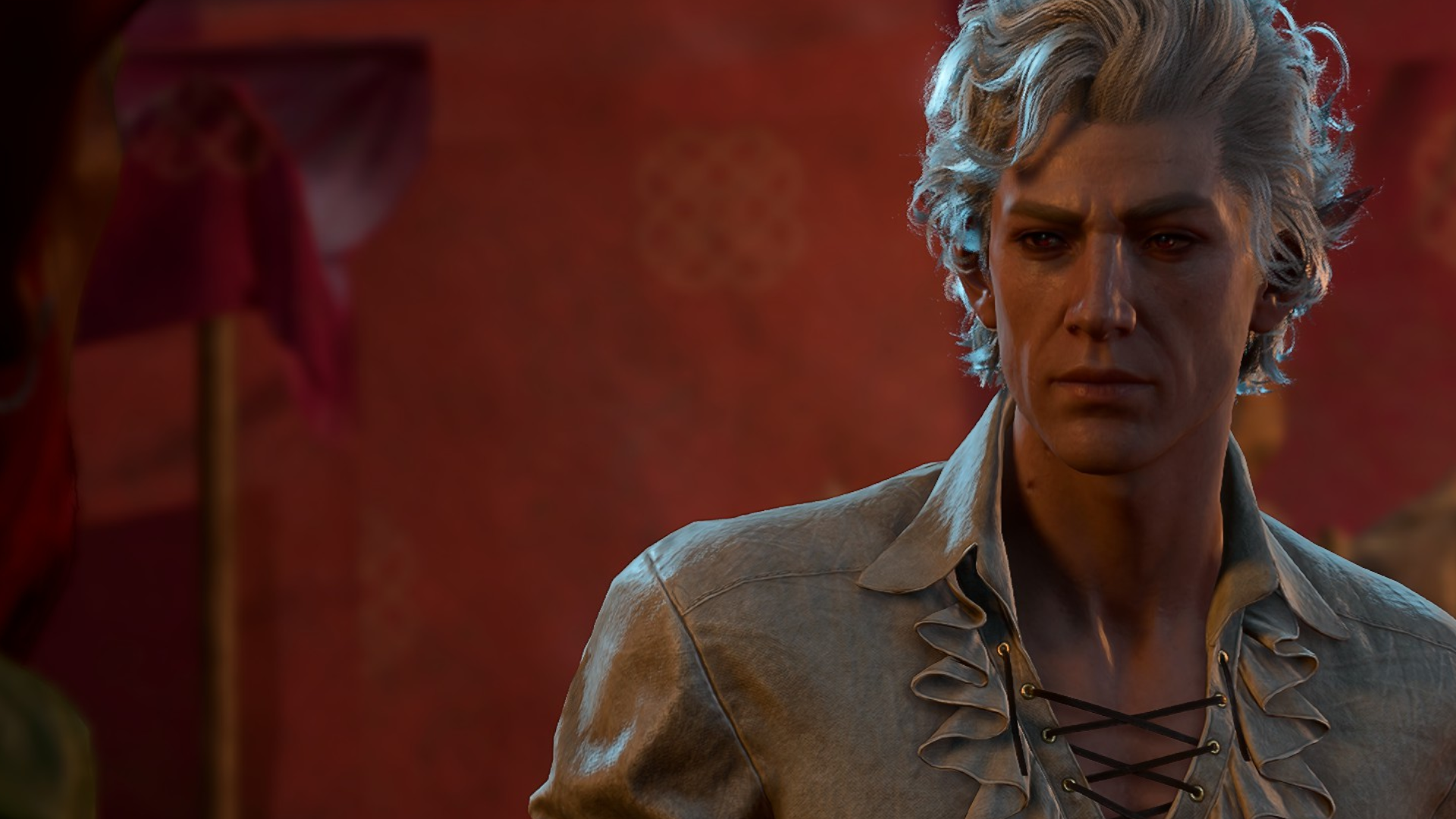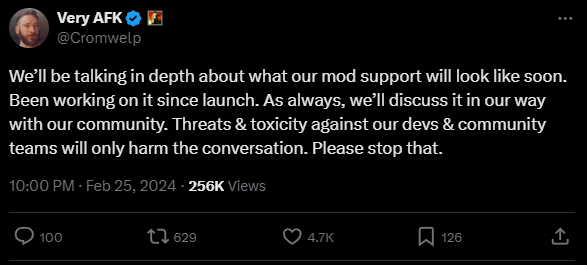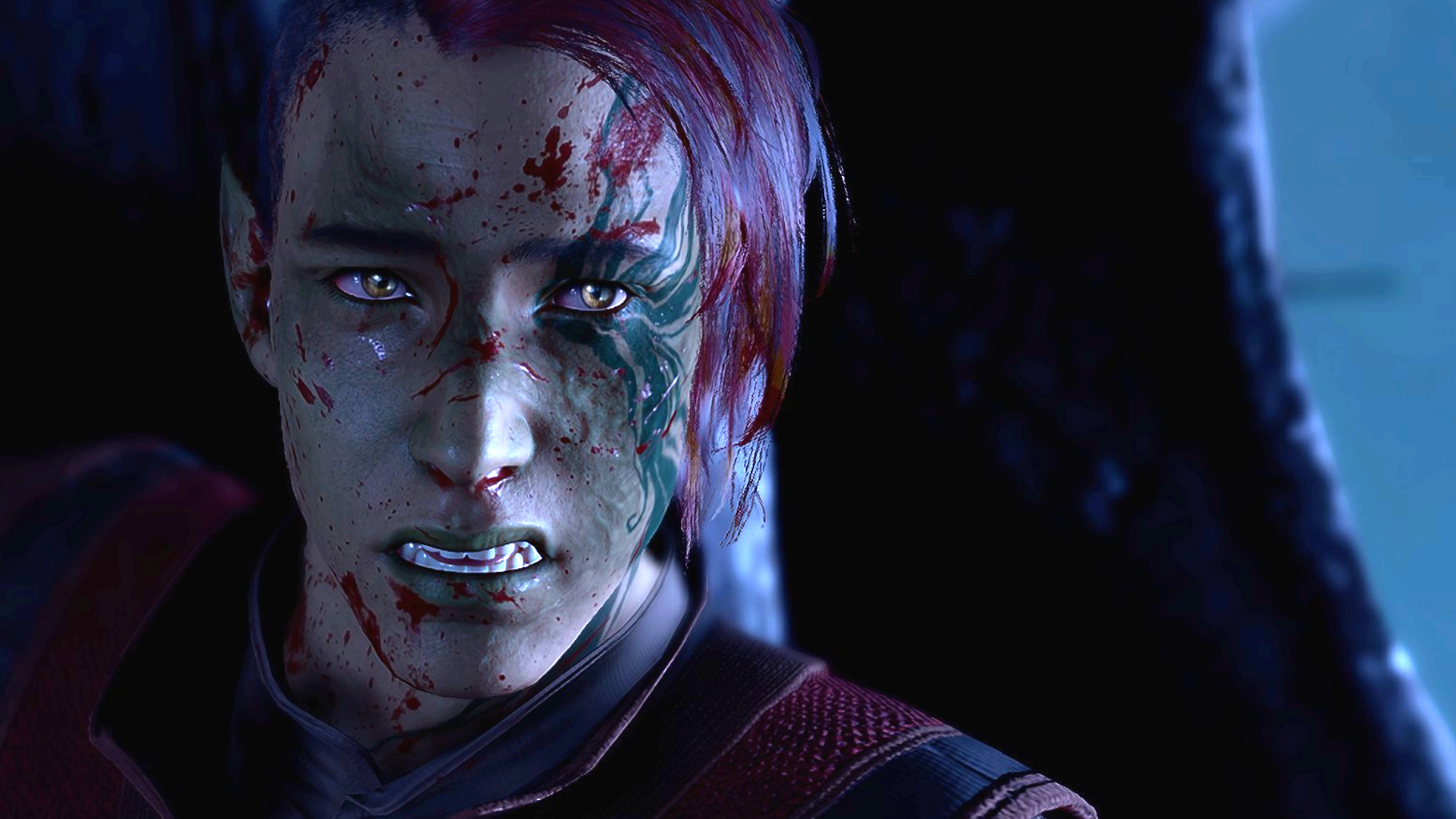'Please stop that': In the run-up to Baldur's Gate 3 modding support, Larian's head of publishing speaks out against 'threats and toxicity against our devs and community teams'
"We need people to understand that these conversations take time."

Patch 6 of Baldur's Gate 3 released recently, and it came with its fair share of bugs and issues, most of which are getting fixed in short order. One thing that had modders' hackles raised, however, was a double-tap that busted the game's script extender (required to run the lion's share of mods) twice: One expected breakage when the patch dropped, and a second less-anticipated break from a hotfix.
While you should never expect mods to work after a major patch, I can see how it'd be frustrating for some players to sit through a (self-inflicted) wait after a major update and get things working again, only for a 'smaller' one to put them back in the queue.
Though I doubt modders ought to be Larian's main consideration when releasing a hotfix, it did strike the player base as odd, to say the least. In a response to this upset slice of its player base, Larian stated it'd be working on official mod support for the game, a "robust, cross-platform plan" that'll be coming later this year.
While an announcement like this should come as a positive, it seems like a small portion of the game's community have still acted out—as per a statement from Larian's director of publishing Michael Dowse on Twitter.
"We’ll be talking in depth about what our mod support will look like soon. Been working on it since launch. As always, we’ll discuss it in our way with our community. Threats and toxicity against our devs and community teams will only harm the conversation. Please stop that."

Dowse continues: "This is a game that went from [around 2 million] players to way over 10 in a very short space of time, so it’s natural the conversation becomes muddier and complex. But in order to maintain the same level of dialogue, we need people to understand that these conversations take time."
Which is fair. I can't imagine the unenviable task of untangling a deluge of feedback (something Dowse calls a "giant web of noise") that large—nor the task of making changes to a sprawling RPG like Baldur's Gate 3. "If you truly want to know things about the game, please don’t chip away at the people who connect us all."
Keep up to date with the most important stories and the best deals, as picked by the PC Gamer team.
Dowse adds that "99.9% of our community are the absolute best and it’s because of them— thankfully—that my community team perseveres. But I suppose it was inevitable that when you have a city, a few bad eggs will start a fire."

He notes that, if the situation gets measurably worse, the Larian team might have to throw up some walls for its own sanity's sake: "We can only be close if we can work close. If we cannot do that, and we have to draw distance, it’ll really suck for everyone, especially us and definitely you. Please help us to work for the greater good of the millions of people who are involved and chill."
It's a double-edged sword that comes with this kind of approach—especially with a game that's this popular. Developers gain a lot by listening closely to feedback, talking with their players, and putting a face to their names on social media. On the other hand, they also open themselves up to the masses at large. While only a small portion of said masses are nasty, the law of large numbers kicks in very quickly: 0.5% of a million people is still 5,000 angry strangers yelling at you.
Either way, mod support is coming, but "until then, BG3 does not yet have mod support … Our focus is to patch the game while working on future mod support. I understand why it’s frustrating, so what we all need to do is focus on that future."

Harvey's history with games started when he first begged his parents for a World of Warcraft subscription aged 12, though he's since been cursed with Final Fantasy 14-brain and a huge crush on G'raha Tia. He made his start as a freelancer, writing for websites like Techradar, The Escapist, Dicebreaker, The Gamer, Into the Spine—and of course, PC Gamer. He'll sink his teeth into anything that looks interesting, though he has a soft spot for RPGs, soulslikes, roguelikes, deckbuilders, MMOs, and weird indie titles. He also plays a shelf load of TTRPGs in his offline time. Don't ask him what his favourite system is, he has too many.

